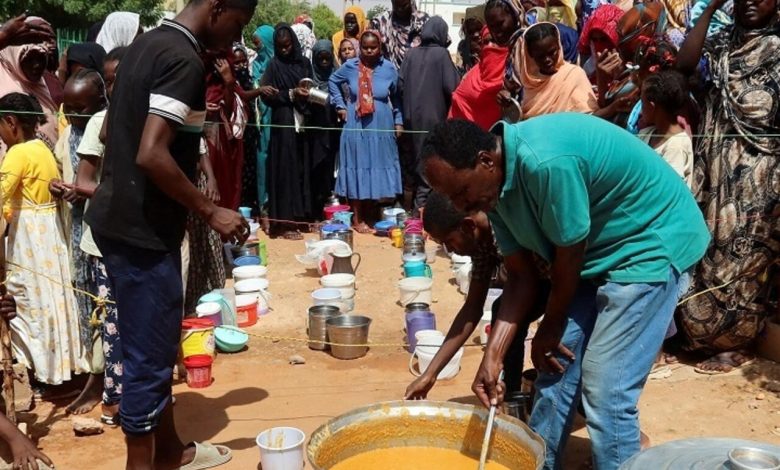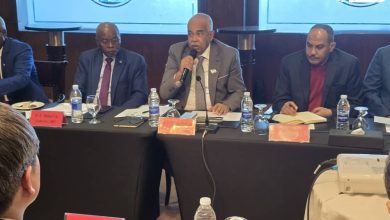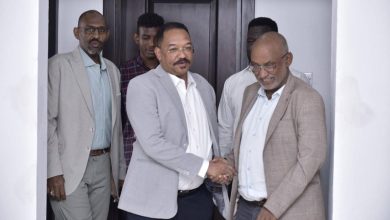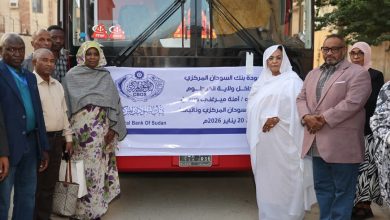Famine warnings… Sudan is on Verge of Passing the Test Point

Report – Rehab Abdullah
The reports that have been issued by international organizations, in which they broadcast warning doses of the occurrence of famine in Sudan due to the repercussions of the war, and even announced that it will be the harshest famine in the history of the country, and will reach its peak between August and next December, are matched by the talk of others inside Sudan that for the first time in the history of Sudan, the irrigated area of the Gezira is exposed to famine, although it was not greatly affected by the famous famine of the year 6, and according to the FAO report and the announcement of Martin Griffiths, Assistant Secretary-General of the United Nations for Humanitarian Affairs, “about 25 million people will be affected by the famine in Sudan, including 18 million cases of severe food shortages, and about 3 and a half million children will be exposed to bad Nutrition, the critical stage, the point of death.
Worrying reports
Perhaps these worrying reports have created a kind of fear and concerns among the citizens of Sudan, especially those in the inflamed areas, but what is evident is that despite these worrying global reports, there are reassurances and assurances issued by the Sudanese government, most notably the statements of Sovereign) Council member Lieutenant General Ibrahim Jaber and the statements of the Ministers of Finance and Agriculture that rule out the risk of famine to confront the country.
* Reassurances assurances and *
Lieutenant General, naval engineer Ibrahim Jaber, member of the Sovereign Council and Assistant Commander-in-Chief of the Armed Forces, gave the Sudanese people good news that the productivity of Gedaref alone exceeded 6 million bags of food grains. Jaber said during his visit to the crop markets in Gedaref that there is no room to talk about famine in Sudan, and that Sudan’s landmasses have achieved high productivity this season. Jaber praised the Governor of Gedaref for the success of the agricultural season, for which he was heading the Supreme Committee this year. Jaber sent a message to those who talk about the specter of famine in the country that the strategic stock of food grains is sufficient for the coming year.
Food position
On the other hand, the Minister of Agriculture, Dr. Abu Bakr Al-Bushra, ruled out the occurrence of a famine, and issued reassurances regarding the food situation in the country, and explained that corn production for this year amounted to 3.3 million tons and that the real need is 3.9 million tons, which means that there is a slight difference in the need.
He also pointed out that the production of millet for this year is 683 thousand tons and other agricultural products, pointing to the strategic stock that exceeded 4,786,000 tons of food reserve, and he acknowledged that the problem is how to deliver these materials to the needy who are closed within the cities and some states.
Meanwhile the Governor of Gedaref, Mohammad Abdul Rahman Mahjoub, explained that this year’s production of sorghum, millet, and sesame is sufficient for the country’s needs for the next season, praising the state’s care and provision of the farmers’ needs and facilitating the agricultural process. Mahjoub confirmed that the state’s preparations for the next season have been completed and that agricultural areas will increase this year compared to last year, confirming that the remaining food grains for last season are estimated at 4 million bags.
In this context, the former governor of the Gezira Scheme, Dr. Omer Marzouk, refuted the expectations of external organizations that Sudan would be exposed to a food crisis due to the war since mid-April of this year, and he said in his statement to (Sudan Events ) that Sudan will not starve, and he attributed this to the fact that Sudan enjoys fertile agricultural lands and harvests a good percentage of Crops and food grains, pointing out that the Gezira Scheme alone cultivates (350,000) fedans of sorghum, equal to 3,500,000 sacks of sorghum .
In addition to planning to plant (300,000) fedans of wheat during the winter season of the current year 2023, in addition to producing the rest of the projects.
Justified warnings
However, the head of the Dignity Battle Media Coordination, Hasabo Dafallah Al-Sennari, expressed his hope that Medani would be liberated before the fall seasom, because he said that its fall under the control of the Rapid Support Militia (RSF) would mean a real human tragedy would occur in Sennar, the White Nile, North Kordofan, and all the states of Darfur, because it would become like… The isolated islands that will not reach food, fuel, and medicine because the road that the trucks are taking now is an agricultural road, and with the first rain, the trucks will not travel on it.
Referring to their discussion during the twinning meetings that took place between Gedaref and Sennar, the issue of the arrival of fuel for the agricultural season, they stressed the importance of the arrival of fuel to the state of Gedaref, Sennar, and the White Nile in order to enter the fuel for the agricultural season before the fall, via Port Sudan, which reaches Gezira . Al-Sennari indicated that the road is currently closed, adding: The only outlet has become a dirt road that passes through dirt areas that do not have a road or rubble. He warned that it would be interrupted if rain fell, and he expressed his hope for the victory of the armed forces and their ability to liberate the state of Gezira, and for the cleanliness of the road linking Sennar and Medani and between Medani and the East, so that we do not enter into a real fuel crisis, which will cast a negative shadow. He added, “I hope that Madani will be liberated before the fall, because falling under the control of the RSF means a real human tragedy will occur in Sennar, the White Nile, North Kordofan, and all the states of Darfur, because they will become like isolated islands to which food, fuel, and medicine will not reach because the road that the trucks are currently taking is a road.” Agricultural, and with the first rain, trucks will not drive there.”
Preferential features
In the same context, Dr. Naglaa Hussein Al-Makabrabi said that Sudan will starve if the morale of the Sudanese is defeated and it “slumps” to inactivity and laziness, succumbs to frustration, becomes afflicted with panic and fear, and refuses to work in everything that contributes to its self-sufficiency in terms of agricultural crops, grazing and fishing, pointing out that Sudan possesses elements that do not afflict it with hunger, and it possesses a rising human mentality and possesses faith-based motivations that are always filled with hope for the best to come, no matter how intense the war is. She continued, “Sudan will not starve as long as it has a fearless warrior and as long as it has an army to protect it,” while journalist Rajaa Mustafa affirmed that Sudan will not starve because it is the world’s breadbasket, and she added that A good indicator is that many citizens are returning to agriculture due to migration to cities and villages in the states.
A Call to Attract Foreign Investments after War
Events – Rehab
Economist Dr. Haitham Fathi pledged the achievement of development in Sudan to the entry of large and diverse investments, and called for working seriously to attract foreign investments up to the equivalent of 40% of the volume of gross domestic investment in order to achieve growth rates of up to 6% to achieve a major development shift in changing the structure of the national economy and bridging the gap between it and the slowdown in reform and development, the decline in growth rates, the decline in individual income, and the worsening problem of unemployment.
During his statement to Sudan Events , Fathi warned that encouraging investment requires activating the banking and financial system in order to grant medium- and long-term loans, whether for the purpose of establishing production or service projects in addition to localizing joint-stock companies and offering their shares for public subscription, in order to transfer national savings and make them an effective investment bloc.
Fathi stressed that moving the wheel of the Sudanese economy after the war and during the process of rebuilding the Sudanese state and its economy falls on the banks to support and finance the owners of small and medium enterprises because these projects contribute to providing the necessary goods and services and save the state from importing hard currency. These projects, according to international statistics, accommodate more than 70. % of the labor force, and he believed that this is how unemployment and poverty are addressed.



